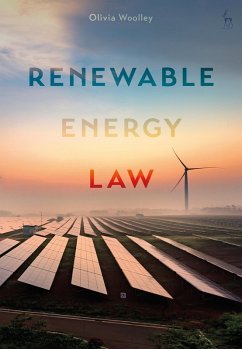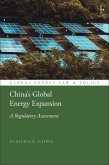This is the first textbook to provide a clear understanding of law's role in promoting the global growth of renewable energy production and consumption.
The book introduces readers to the main legal frameworks shaping the rise of renewables at international, regional and national levels, including those which set targets for reducing greenhouse gas emissions and increasing renewable energy consumption.
Clear explanations of challenges commonly confronting renewable developments and the legal responses to them aid readers' understanding whatever their background. The author, a leading researcher in energy and environmental law, has drawn on 10 years' experience of developing and teaching research-led courses on renewable energy law to produce an authoritative but accessible work.
Readers will come away with a better understanding of how international law on climate change and sustainable development affects renewable energy, the roles of renewable energy targets and subsidies, the laws on integrating renewables into electricity networks, the legal response to public opposition to renewable energy development, the law surrounding offshore renewables, and issues raised by the decarbonisation of road transport.
The book introduces readers to the main legal frameworks shaping the rise of renewables at international, regional and national levels, including those which set targets for reducing greenhouse gas emissions and increasing renewable energy consumption.
Clear explanations of challenges commonly confronting renewable developments and the legal responses to them aid readers' understanding whatever their background. The author, a leading researcher in energy and environmental law, has drawn on 10 years' experience of developing and teaching research-led courses on renewable energy law to produce an authoritative but accessible work.
Readers will come away with a better understanding of how international law on climate change and sustainable development affects renewable energy, the roles of renewable energy targets and subsidies, the laws on integrating renewables into electricity networks, the legal response to public opposition to renewable energy development, the law surrounding offshore renewables, and issues raised by the decarbonisation of road transport.









